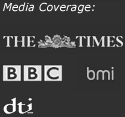Accountants are essential to a business of any size. Certainly as soon as you can, you should appoint an accountant to help you when starting a business. Definitely by the time you are trading.
Why you need an accountant.
Whilst a good accountant can help with business plans and strategy, it has to be said that there are other options for this help also - your bank, specialist small business consultancies etc. However, in terms of advice on setting up your business as a sole trader or limited company, tax and vat, then you need an accountant.
Your accountant will also be able to help you with:
- Managing and administering your payroll system, calculating PAYE tax and generating payslips for you and your staff.
- Calculating the National Insurance contributions that you are required to pay.
- Helping you to administer VAT and Customs & Excise duties.
- Advising on budgeting, invoicing, credit control and cash flow.
- Advising on record keeping systems (including computerised records).
Note that if you have or are forming a limited company, the Inland Revenue will consider the directors as employees of the company, hence PAYE.
As a sole trader, partner or director, you are responsible for calculating and paying your own income tax. An advantage of having an accountant dealing with your business finances is that they will be well placed to manage your personal tax matters too.
How do you choose an accountant
Ideally you would find an accountant by recommendation from a friend or colleague. There is however nothing wrong with going through the local yellow pages or searching the web. Draw up a short list, contact them and ask a few questions:
- Size: you should try to find accountants that match your own business for size. Then you are important to them.
- Focus: what type of clients do they currently have? Are they focusing on small businesses or large corporations.
- Locality: you will want to be able to easily visit your account to discuss face to face your business. Choose a local accountant or a larger practice that has a local office.
- Understanding: do they understand or are they familiar with your type of business?
- Name: get the name of the individual accountant that will be handling your business and meet them. You have to get on with that individual.
- Fees: how do they deal with fees (see below).
Once you are happy that you have a final short-list of likely accountants, arrange to meet them. For this first meeting it is usually free of charge. Check with the accountant that this is the case however. Chose the one you then feel most comfortable with and who has won your confidence.
Accountancy Fees
Accountants may charge by the hour, but many now understand that there are just some basics that a small business requires and so will be happy to fix an annual fee, paid monthly. Check with the accountant what this covers.
The accountant may ask you about the way in which you will keep your records, ie sales information, purchases, receipts etc. He will charge you according to how much work he has to do to use those records. So if you are keeping them electronically in say a spreadsheet or software package, it is less expensive for the accountant and he will charge you less than if you want to use hardcopy files.
The better organised you are the cheaper the service.



